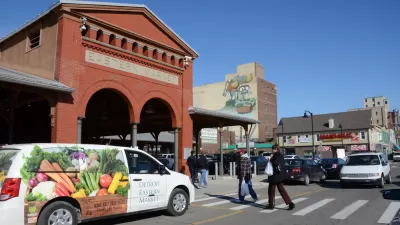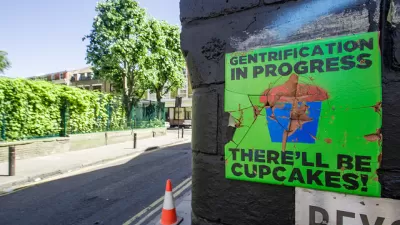Bruce Katz argues that federal investment in urban areas fosters a public/private ecosystem that can prioritize long-term thinking, minimizing the "short-termism" endemic to corporations and governments acting alone.

In a piece for Brookings, Bruce Katz argues that federal investment in cities could counter the short-term thinking common to elected officials and executives focused on quarterly earnings. From the article: "Washington assessments of the forces driving short-termism tend, not surprisingly, to lead to federal proposals to curb the practices of short-term actors. I suggest another approach: provide more support for the places—cities and metropolitan areas—that are already thinking and acting for the long term."
Unlike isolated federal or corporate actions, the urban environment necessitates cross-sector partnerships. "Cities do these things through a mix of investments by a broad range of public, private, and civic investors that cut across sectors as well as jurisdictional and disciplinary lines."
With this in mind, Katz suggests several ways Washington could support long-term solutions in cities, paraphrased below:
- Increase investments in basic science and applied research
- Locate satellites of isolated national energy and military labs near urban universities
- Use new credit enhancement tools around urban infrastructure to attract large-scale private investment
- Increase flexibility in federal grants to let leaders on the ground decide the uses with the highest impact
- Standardize and disseminate data on new instruments like social impact bonds or regional venture funds, letting city networks make smart decisions
FULL STORY: Are cities the cure for short-termism?

Alabama: Trump Terminates Settlements for Black Communities Harmed By Raw Sewage
Trump deemed the landmark civil rights agreement “illegal DEI and environmental justice policy.”

Planetizen Federal Action Tracker
A weekly monitor of how Trump’s orders and actions are impacting planners and planning in America.

The 120 Year Old Tiny Home Villages That Sheltered San Francisco’s Earthquake Refugees
More than a century ago, San Francisco mobilized to house thousands of residents displaced by the 1906 earthquake. Could their strategy offer a model for the present?

In Both Crashes and Crime, Public Transportation is Far Safer than Driving
Contrary to popular assumptions, public transportation has far lower crash and crime rates than automobile travel. For safer communities, improve and encourage transit travel.

Report: Zoning Reforms Should Complement Nashville’s Ambitious Transit Plan
Without reform, restrictive zoning codes will limit the impact of the city’s planned transit expansion and could exclude some of the residents who depend on transit the most.

Judge Orders Release of Frozen IRA, IIJA Funding
The decision is a victory for environmental groups who charged that freezing funds for critical infrastructure and disaster response programs caused “real and irreparable harm” to communities.
Urban Design for Planners 1: Software Tools
This six-course series explores essential urban design concepts using open source software and equips planners with the tools they need to participate fully in the urban design process.
Planning for Universal Design
Learn the tools for implementing Universal Design in planning regulations.
Clanton & Associates, Inc.
Jessamine County Fiscal Court
Institute for Housing and Urban Development Studies (IHS)
City of Grandview
Harvard GSD Executive Education
Toledo-Lucas County Plan Commissions
Salt Lake City
NYU Wagner Graduate School of Public Service





























